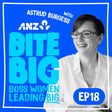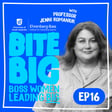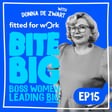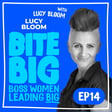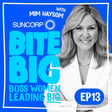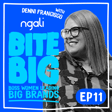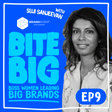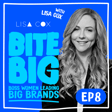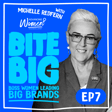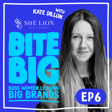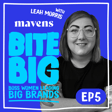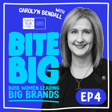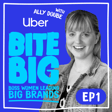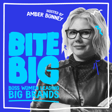
Amber Bites Big with Shamini Rajarethnam , CEO Rationale Skincare
In Episode 17 of BITE BIG, we go behind the scenes of one of Australia's most successful luxury skincare brands, Rationale, with its trailblazing CEO, Shamini Rajarethnam. From navigating global expansion and regional relocation, to staying ruthlessly focused in a fragmented market, Shamini shares the story of building an enduring brand without compromising on values.
With a mantra passed down from her father, "Nobody cares how much you know until they know how much you care", Shamini's leadership style is deeply human, deeply strategic, and unapologetically clear on what matters most: purpose, people, and integrity.
👑 Boss Takeaways from Episode 17 with Sharm
- Leadership is caring: Sharm’s leadership mantra reminds us that empathy and connection are the real currencies of influence.I
- Curiosity builds capability - From digital marketer to CEO, Sharm’s rise was fuelled by intellectual curiosity, humility, and the courage to ask questions, no ego required.“
- Integrity is your strategy- Saying no to distractions and staying laser-focused on your North Star isn’t just brand discipline it’s brand leadership.
- Culture starts at the top You can’t delegate culture. Sharm leads her team with the same care and intention she brings to her customers.
- Bite big, but know when to stop- From global expansion to building a regional HQ, Sharm proves that knowing when to pivot or quit is as brave as pushing forward.
- DE&I drives insight - Diversity isn’t a checkbox—it’s a competitive edge. From packaging to policy, inclusive voices lead to better decisions and better design.
🔗 Follow BITE BIG for more unfiltered stories from women who lead big—one mantra at a time.
Links:
Shamini's LinkedIn
Shamini's Instagram
Rationale Skincare
Rationale Instagram
Rationale Facebook
Primed to Perform by Neel Doshi
The Let Them Theory by Mel Robbins
Fight Parkinson’s
Amber's Instagram
Amber's LinkedIn
The Edison Agency's LinkedIn
The Edison Agency's Instagram
CREDITS
Host & ECD – Amber Bonney, The Edison Agency Founder
Producer – Niki Beeston, Group Account Director, The Edison Agency
Marketing – Liz Archer, Head of Operations, The Edison Agency
Social Assets – Alyssa Payad, Intern, The Edison Agency
Post Production – Francine Toscano, 17th Street Audio
